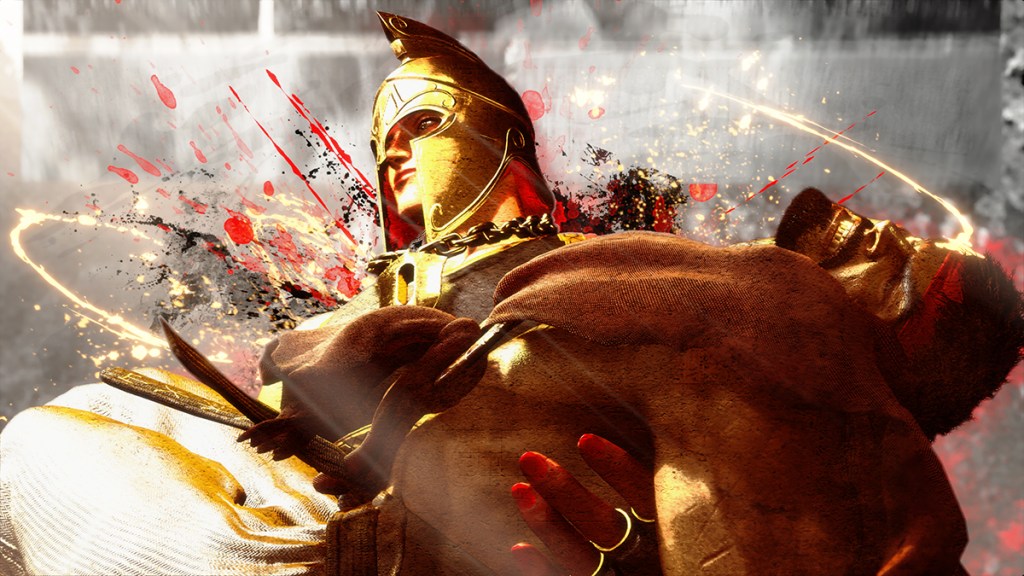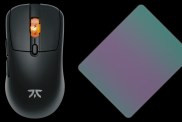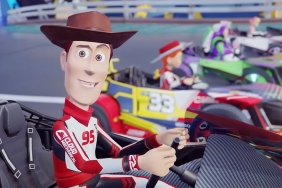Street Fighter 5 was one of Capcom’s many missteps in the previous generation that saw the infamous publisher at one of its historic lows. It was seemingly a hell of a learning experience since those hard times led to Resident Evil’s resurgence, one of the best Mega Man games, a bunch of well-made retro collections, and, now, Street Fighter 6. Capcom has emphasized the “Street” part of the title to great effect, giving it a distinct personality to go alongside its tight and traditional fighting mechanics that restore this franchise to some of its former glory.
Street Fighter 6 doesn’t look too different from its predecessor, but it’s almost all in the details. This starts from the presentation that’s covered in graffiti and has much more of a style that’s honest to the name and more colorful and visually exciting. This simple, three-pronged main menu set to bassy, hip hop beats is much cleaner and efficient than Street Fighter 5, which was an eyesore with of too many plain boxes and annoying pop-ups.
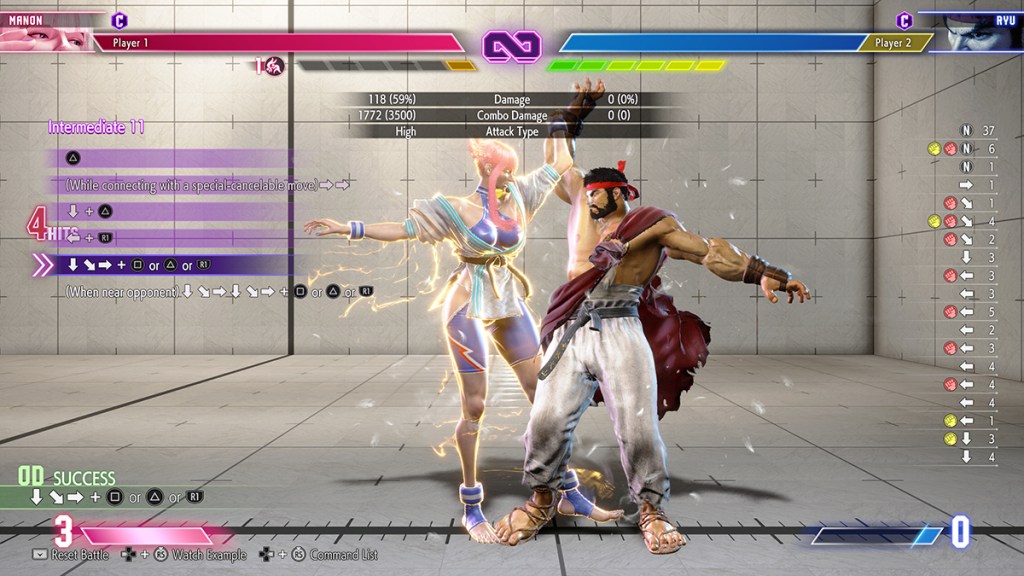
This more apt theme sets the tone for its wider array of options, and this goes far beyond its more detailed and streamlined tutorial. Button inputs in the command list can now be swapped to the actual symbols on the controller, which is helpful for those who don’t have the different punch and kick icons burned into their brains.
Character guides are not only written with personality, but are actually more involved and interactive this time around. This makes learning a character significantly easier, something that’s also aided by the brief description detailing what each attacks does and the supremely helpful videos that play in each fighter’s move list that show those attacks in action. Combo trials have also been improved through short examples that more cleanly lay out how to perform the juggle in question and are even ranked by difficulty, which is helpful for players of all skill levels.
The new control options that support button mashers and simplify the commands are easy features to point to as evidence of Street Fighter 6’s improved accessibility, but they’re only a glimpse of the work Capcom has done to make Street Fighter more appealing and modern. There’s still some work to do, though. An intermediary Mortal Kombat-esque control scheme with simpler joystick movements would help bridge the huge gap of complexity between the Modern and Classic control schemes. Also the lack of easily accessible frame data makes it difficult to cleanly discern what is good for punishing what. And while still great overall, the tutorial could still be a touch more interactive. But these shortcomings are part of a robust package that’s more geared toward players who didn’t grow up playing Street Fighter in the arcades.
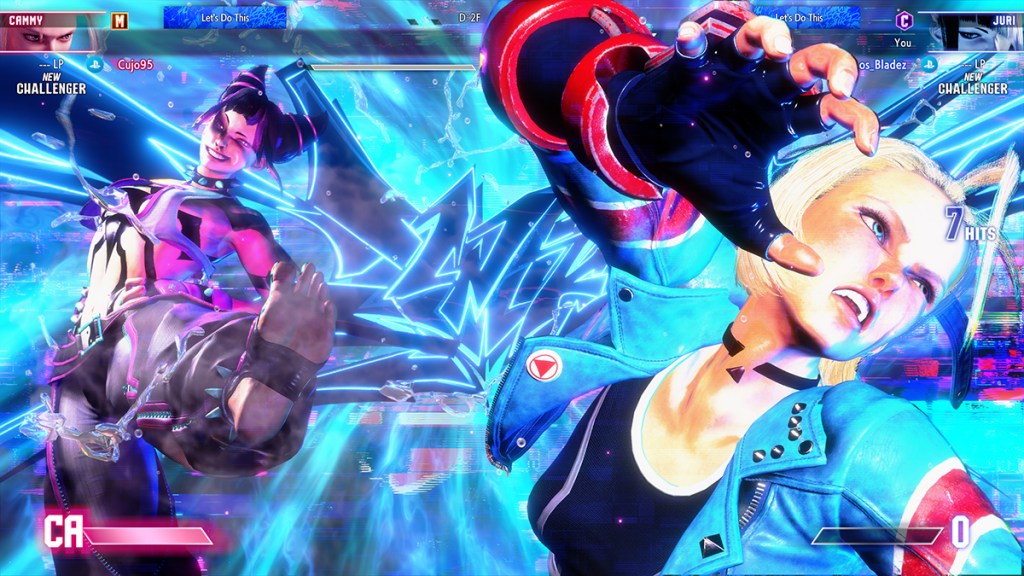
Street Fighter 6 is built for competitive players, too, and has the mechanics to prove it. The Drive system is the fundamental new mechanic that’s at the heart of its depth and is another gauge that aids players offensively and defensively. Drive Impacts are armored Focus Attack-like blasts that are great for not only dousing the screen with colored paint that matches the character, but also for escaping pressure and creating openings against an enemy that’s turtled in the corner. Drive Parries are the opposite, as players spend meter to parry strikes and doing so perfectly can make some moves easier to punish.
The interplay between these two straightforward systems adds more nuance to fights and they sit alongside the Drive Reversal system that acts as a push block and Drive Rushes that are for veterans who want to spend bar to dash in quickly or perform more complex combos. Enhanced specials called Overdrive attacks also draw from this very same meter, so while it may seem like a lot, it’s all woven together beautifully. Unlike the poorly explained V-Skill and V-Trigger systems in Street Fighter 5, the Drive system is universal and layered in a way where it’s easy to grasp the basics and gradually move up from there. Drive Impacts are the flashy first aspect to learn before graduating to the more complicated systems as time moves on. This ramp makes it so it isn’t daunting to start from square one, and its subtleties mean that there’s plenty to dig into after that.
The roster itself that utilizes these tools is a good mix of classic fighters and new ones that hit all sorts of playstyles. From Kimberly’s status as a rushdown goddess to Marisa’s specialty as a damage-dealing tank to JP’s position as a zoner, each new character is distinct both visually and mechanically, while the standbys have been touched up and given some new features. This cast is going to inevitably double over time, but this is a solid, well-rounded starting point.
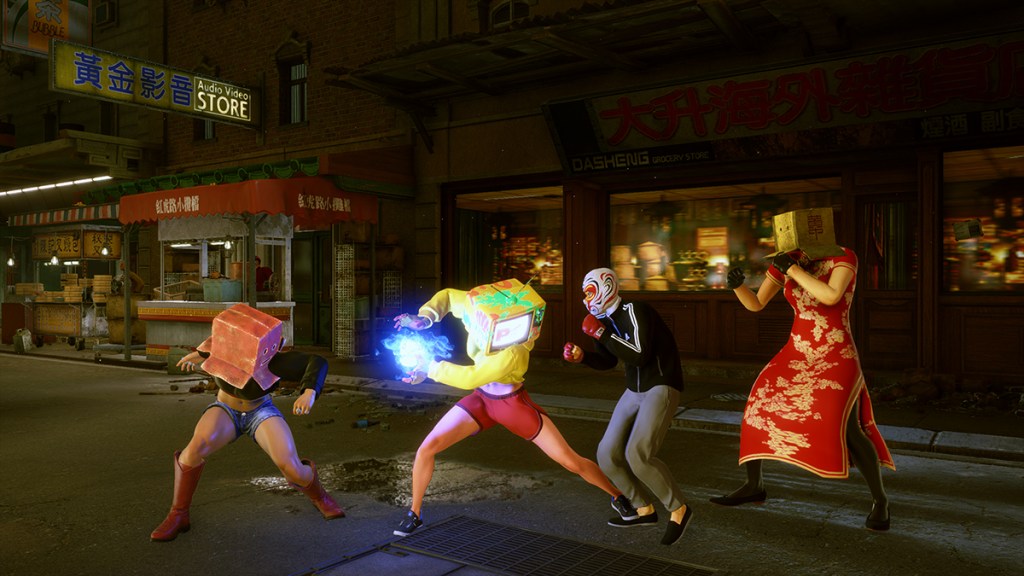
Players also create their own fighter for the RPG-like World Tour mode, and while a decent idea, it’s a poorly constructed, ugly mess that completely misses what makes Street Fighter 6 a great game. Fighting games are dictated by being on an even playing field and the misguided leveling system throws that all off balance. Battles are either extremely difficult or cheap because of inflated health bars or absolutely no challenge. Missions don’t generally yield any experience, either, so grinding basic fights after every main quest is a tedious necessity that artificially elongates the already-long campaign.
The other RPG aspects are similarly flawed. The equipment system is limited and filled with ill-fitting clothes that are boring and hardly, for the most part, look like street-fighting gear. Building a combatant is a solid idea seen in other fighting games — there is an appeal to creating a Luke, Marisa, and Chun-Li hybrid that can move fluidly between different playstyles — but World Tour also holds so much back that it’s hard to get any grasp of the wider systems. It doles out the main mechanics so slowly and turns it into an incredibly boring and terrible way to learn the game. A handful of missions teach players its systems (like its creative pizza-making mini-game and three tutorial-focused NPCs), but most don’t and are all tied to a hobbled fighter that makes a mockery of the game’s depth.
The majority of these quests are menial in nature and usually have players run back and forth before being roped into some shallow fight. The player character also never talks, so these are always overly long, one-sided conversations that have no actual meaning. The narrative beats also suffers from this mute protagonist since it is jarringly awkward when the main catalyst of the story has nothing to contribute. It also doesn’t help that the story is extremely predictable, atrociously paced, and introduces its main villain in the last 30 minutes.
Capcom failed when it tried to emulate NetherRealm Studios’ approach with Street Fighter 5’s story mode, and while it is noble to go in a completely different direction, this RPG is horribly designed. Street Fighter 6’s traditional arcade ladder and casual Extreme Battle mode don’t offer much to solo players, but this more fleshed-out experience is even worse because it is an active waste of time.
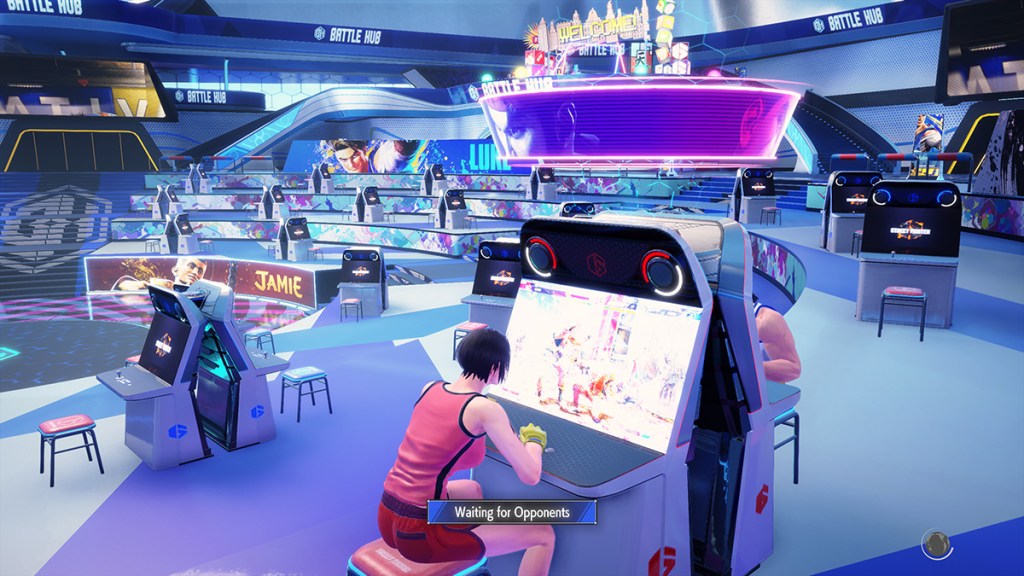
The World Tour avatar can at least be taken online to the Battle Hub, which is much more in line with Street Fighter’s core ideals. While a more conventional menu gets players right into matches, the Battle Hub is an online space where players can gather to challenge each other at kiosks, play classic Capcom games, buy gear, take photos, and just hang out. It’s not essential, but its ability to grow over time and potentially evoke the glory days of the arcade makes it a decent (if somewhat ignorable) addition.
Street Fighter 6 Review: The final verdict
Street Fighter 6 is a redemptive sequel that’s more complete and has a distinct style. Street Fighter 5 did eventually get better, but Street Fighter 6 has come out the gate swinging with a suite of deep mechanics with more intuitive ways to learn and master all of them. The single-player modes are lacking, and, in World Tour’s case, disastrous, but it’s a strong fighting game that packs quite a punch.
Positives and Negatives
-
Interactive tutorials are thorough and walk players through each mechanic and character
-
The Drive system is easy to understand, but full of depth and has multiple layers
-
Distinct style full of neon and hip hop that evokes the "Street" part of its name
-
The roster has a good mix of newcomers and familiar faces that all have unique playstyles
-
World Tour is overly long, abysmally paced, grindy, ugly, poorly balanced, and a complete waste time
-
Solo modes are weak and underdeveloped
Disclosure: The publisher provided a PlayStation 5 copy for our Street Fighter 6 review. Reviewed on version 1.000.000.
